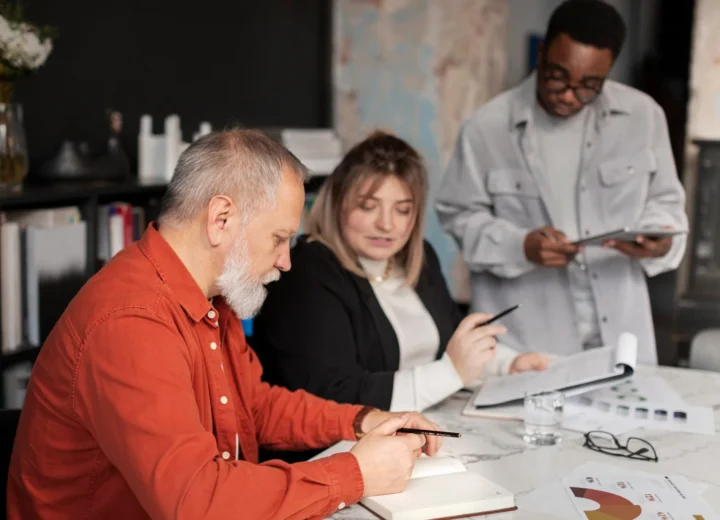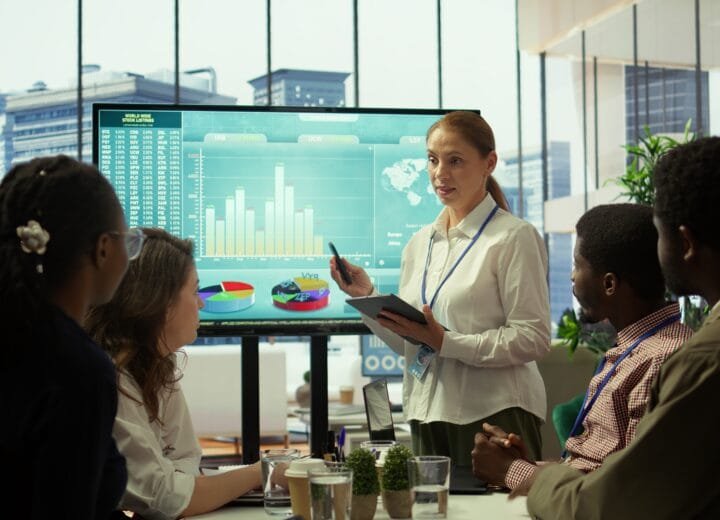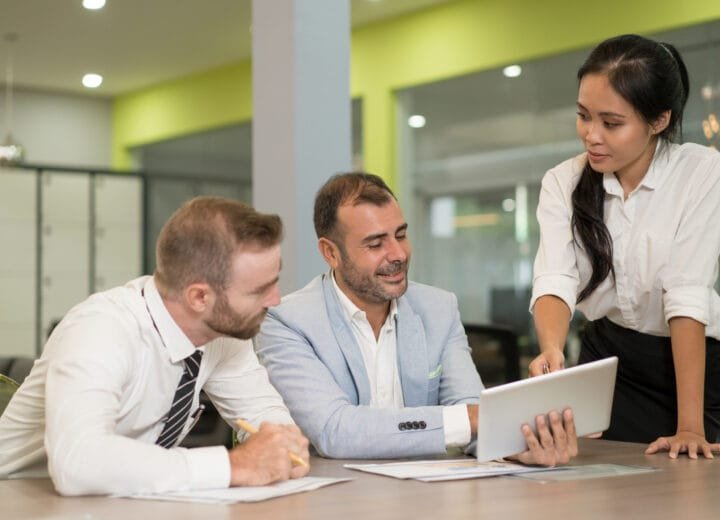In this edition of iFaber, we bring to you another tale from the floors of one of our clients, which is a leading manufacturer and exporter of decorative high-pressure laminates. We had a chat with Mr. Vishal Dokania – Director Durian Laminates. Excerpts of this interesting interaction are as mentioned below –
Faber Infinite (FI) – We have a subscriber base of around 20,000+ readers across 8 countries, our readers would want to know more about Durian Laminates and about your journey in the organization?
Vishal Dokania (VD) –The company – Durain Laminates started around 15 years ago. The parent company of Durian Laminates is Durian Industries which is into wooden furniture, plywood, veneers, doors, and much more. Durian Industries has been around for 4 decades. The laminates were added as a complementary to the interior space. So, around 15 years ago Durian Laminates started and we have been growing at a very fast pace. We have quadrupled our production in the past 12 years. Starting from one production line to 4 production lines, we have recently acquired one more unit so now we have the capacity of 6 production lines in Durian Laminates.
Talking about my journey, I started around 11 years ago with Durian Laminates. Before joining the family business, I was in the USA for around 9 years. I completed my Graduation in Computer Engineering and my Master’s in Business Administration in the USA. After that, I decided that its the right time to come back to India and join the family business. Initially, there were a few challenges like understanding the work culture, social norms, and a few other things. Also, most of my time, in the beginning, was consumed in transforming the organisation digitally such as setting up systems, infrastructure, leveraging technology, ERP implementation, and so on. In the first 8-10 years, I was mainly looking at the factories only, now I am working with the overall organisation.
FI – What are your strategies post COVID to get back to normal?
VD – We at Durian have developed quite a few strategies. Few of them worked and few of them even failed. As we all know, this is such a volatile where there is no guarantee of when the lockdown will come to an end. It is very difficult to foresee what is going to happen next.
There were a few challenges for setting up and starting the factory after we got permission to resume the factory with 50% staff. Our focus has always been on the safety of our workers. Now gradually we have started the factories though at a slow pace. Our head office is functional as well. Our distributors are resuming back to work and a few of our galleries have started as well.
We are obviously even looking at reduced output this year, maybe by around 60% to 70%. All of this depends on the govt policies and the mindset of the consumers. There are too many parameters and too many variables to have a strong contingency plan. We are focusing on one week at a time as there are too many variables and too many changes happening around. We have also considered a sizeable cut in the revenues for this year. If you ask for my perspective it will take a year and a half for things to change in better ways.
We are still hoping that by the time Diwali hits, we should be up with almost 100% production capacity.
FI – How do you plan to work on the manpower productivity strategies post COVID?
VD – At the beginning of the lockdown, in the first two months, the entire staff was given proper remuneration. Even our labors were staying at the facility given by Durian. We made sure that the food and the infrastructure is up to the mark and no one should get infected by the virus. To maintain that, we even kept our quarters locked so that no one can go out or no outsiders can enter the quarter to make sure everyone stays safe. We ensured the safety of all our employees. Later the workers could leave based on government policies. Many of our supervisors who are locals or who stayed back, took place of the workers to fill in the gaps.
There is a shortage of workers, and we are trying to get as many workers with the help of our contractors. But it will take a little effort to get the right skilled people. We are also trying to train workers from across the units so they can be utilized when needed in the other units. We have very attractive rewards and recognition schemes for our employees based on their productivity levels so that they stay motivated.
FI – Team Faber has been associated with Team Shakti in continuous improvement initiatives. Can you share more about the journey and the outcomes of the initiatives that have worked for Durain Laminates to stay ahead of the competition?
VD – We implemented the Six S (Five S + Safety) program, which ran for a period of 2-3 years. It was a fabulous journey. We are still looking ahead to strengthen the program soon. But the journey was highly engaging for employees at all levels of the organisation. We also saw a lot of improvement in terms of wastage reduction, improvement in overall efficiencies, also it was highly systematic.
During COVID, we had a look back on all those practices that we used to practice at the time we had implemented Six S. This project that we did with Faber Infinite really helped us a lot to gear up for COVID because we had a mechanism in place for dividing the factories into zones, making team leaders and all that we did before, really helped us even in this situation and it is being followed even now. This has helped build the culture of continual improvement and it reflects at all the levels in the organisation.
FI – Progressive team at Durian Laminates believes that transformation is a journey without end and has been working on different improvement initiatives, what advice would you give to the organizations who are thinking of embarking on the journey or who have embarked on the journey?
VD – The one advice I would like to give is that every organisation must opt for an operational excellence journey in their organisation because it helps. It is hard to see the picture up front. At times you are completely new to the culture. 360 degrees feedback was never a part of your organization. However, the management should be committed to the journey. Management needs to understand the concepts as the concept might be too foreign of what you are doing. It is a slow process because it is a culture shift, it also takes a little bit of time, but you must stay engaged and committed. Because if you are not committed, then it is a waste of time, energy, and money. Once you are committed, good results are bound to be delivered.
We sincerely thank Mr. Vishal Dokania and team Durian Laminates for being a part of iFaber – the official newsletter of Faber Infinite and sharing his valuable insights.
Written & Compiled by Faber Mayuri & Faber Priya




